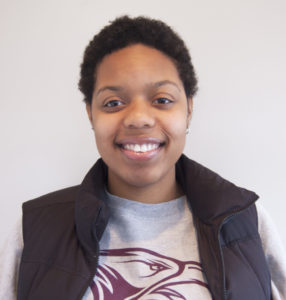Blog Post
Students can, and will, save our democracy
 Right now, neighborhoods should be buzzing with community organizers and students knocking on doors explaining options for each household to respond to the census. We should be attending community events focusing on the practical importance of the census and how an accurate count will improve government programs. We should be hosting block parties and church picnics bringing people together and cultivating community action for change.
Right now, neighborhoods should be buzzing with community organizers and students knocking on doors explaining options for each household to respond to the census. We should be attending community events focusing on the practical importance of the census and how an accurate count will improve government programs. We should be hosting block parties and church picnics bringing people together and cultivating community action for change.
On April 1, enumerators with the U.S. Census Bureau should have entered our communities to begin counting people who live in group quarters like colleges. Organizations should have held canvassing events to increase awareness about the current count and garner participation. None of this will occur, at least not for the next few weeks.
Instead, many communities are quiet, as families remain inside and observe physical distancing guidelines: Quietness will continue as stay-at-home orders remain in response to the COVID-19 pandemic. Social media platforms were flooded with friendly videos, colorful flyers, and witty messages designed to remind Americans to respond to the census. Despite engagement on social media, the days and weeks leading up to Census Day were much quieter than anticipated. What we do in the coming weeks will shape public policy for the next decade. Students have access to knowledge and resources that can be used to agitate their home communities as well as their school communities into action.
Through their participation in student-led organizations and their work with nonpartisan, advocacy, and community-based organizations students create change. Many organizations rely on student volunteers, interns, and fellows to further their missions on college campuses and in their communities. Student-led organizations are instrumental in mobilizing students to fill community needs and advance issue-based causes.
The principles of community-focused work are ingrained in students at historically Black colleges and universities. Many HBCUs have mottoes centered around dedication and responsibility to the community. Students at North Carolina Central University, a public HBCU in Durham, hold the motto “Truth and Service” near to their hearts as they maneuver higher education and community service. These students have historically coordinated on-campus organizations and events to uplift their peers and the Durham community.
The ability of HBCU students to mobilize the community based on the longstanding relationships between institutions and neighborhoods has captured the attention of presidential hopefuls. HBCUs are valuable turf for those seeking office, evident in their efforts to grasp students’ attention; for example, Bernie Sanders’ HBCU Tour and Michael Bloomberg’s “HBCUs CHANGE LIVES!” campaign t-shirts. It is imperative that HBCU students must recognize these efforts and consider their purpose in influencing not only their personal votes but the community as a whole.
Students must stay engaged with their school communities now more than ever. Collectively, student populations interact with nearly all of the unique needs of their communities: Both in their academic studies and through their work with the community. Whether it is mentoring with youth programs, tutoring in schools, canvassing for an upcoming election, or serving at soup kitchens, students are actively filling needs.
Often, students use these interactions to inform their ideas about their community and how they strive to make an impact in it; including, in their fields of study, through their further community work, and with their votes. However, the absence of students from their college campuses and communities, during this period of quarantine and physical distancing, will impact our democracy for the next 10 years.
In 2020, we will elect our next president, members of the 117th U.S. Congress, as well as countless positions at the state and local levels. Every election cycle we have the opportunity to reclaim our democracy by casting our ballots, but this year we have another opportunity. We will be participating in the 2020 census. Every 10 years the U.S. Census Bureau invites every household in the United States of America to participate in the count. The population data collected from the census count is used to allocate resources to government programs, reapportion congressional representation, and create voting districts. Accurate census data is central to creating fair voting districts which will amplify the voices of the community.
We have the opportunity to participate in this process. We can go beyond completing the census form and voting in the districts assigned to us based on the population information collected. We can participate in creating accurate maps that reflect the interests of our communities. Students have the opportunity to lead in these efforts as they exist at the pinnacle of opportunity, resources, and knowledge. Students can, and will, save our democracy.
Jazmyne Abney is a student at NC Central University in Durham and a Democracy Fellow with Common Cause NC.